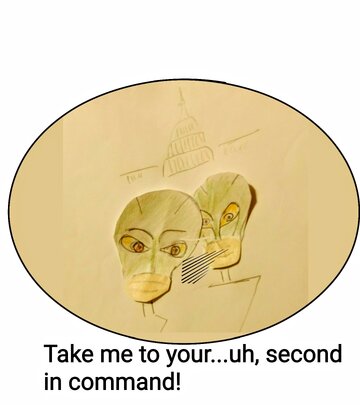As you know, I haven't seen the film 'The Matrix' and I looked for another way to express what I find questionable or objectionable in the hypotheses
@Soupie favors. But that film and its box-office success have made the notion of an informational matrix in which we are acted upon but not acting an influential meme in our technological culture, a meme that I think has seeded the ideas of some of the 'theorists' {I'd rather say 'hypothecators'} we've seen discussed here. I don't want to, and can't (since I haven't seen the film), provide a reading/interpretation of what gets expressed in the film, or whether it's internally and philosophically consistent. Literary and cinematic criticism always involve different 'takes' on the works treated, and it's long been recognized in both fields that even the author's intent, much less the critics' intents, can be taken to provide a single valid key to all of what gets expressed in the work. Thus the need for and value of the 'hermeneutic circle of interpretation' I referred to recently. How many vague gestures toward defensible theories have emerged in the sources we've been reading lately; where do they agree and disagree; and how do they persuade us that their hypotheses are valid and demonstrable?
Almost equally fascinating as the 'matrix' idea has been in popular culture in our time is the decades-long intrigue exercised in the subject of 'mind control' in various forms supposed to have been achieved by secret agencies seeking to manipulate individuals and even whole societies. You seem to be suggesting that 'alternate signals' in 'The Matrix' produce illusions that block natural consciousness in its inhabitants, but that they can recognize the situation and escape it. If so, the film seems to me to present a cautionary tale concerning the over-technologization of our society and culture. Or perhaps another illustration, like Plato's cave, of how easily people can be brain-washed by restricting what they are able to sense and see in and of their actual environing world.
Re your reference to 'most Philosophy 101 courses', such introductory courses would probably discuss the issue of 'Appearance' vis a vis 'Reality', but they would not explore this topic thoroughly or exclusively since there is so much more to present in an introductory philosophy course. The underscored statement is a broad and rather fuzzy claim, one which Consciousness Studies has engaged prodigiously in the last three decades in terms of differences between Analytical and Phenomenological philosophies of mind.
The 'source [better: 'ontology'] of the universe' is always in question in these latter-day attempts to reduce or deny that we possess our lived consciousnesses as active experiential capabilities in discerning the nature of that which we encounter in the tangible world and what we can ultimately understand and define as 'reality'. Can you clarify what you mean by a 'factor' [in nature?] that produces a filter in human brains that conditions or limits our 'experience of the world' and thus our interpretations of our experience?
I can get a vague sense of what you're saying here, but it seems to amount to saying that we living creatures on this planet have been fitted by evolution and adaptation to physically survive as best possible in the natural environments we exist in. Are you also saying that our natural dispensations of awareness, consciousness, and mind might be somehow 'filtered' in our neurons, neural nets, and brains to produce false impressions of what-is?
Those are interesting questions we could pursue, and I imagine that each of them would produce a range of responses. Too much for me alone to respond to right now, or perhaps ever.
I asked my Microsoft Edge search tool to answer my question 'are sponges a form of life?'. The answer is yes, and I like your sentence "
Yet the water still affects the sponge" because affectivity consequent to awareness are the very origins of proto-consciousness and consciousness according to Jaak Panksepp, whose book on Affective Neuroscience I wish everyone would read. I'll link it below, and here I'll link the search results re the living sponge:
are sponges forms of life? - Bing
I would have thought that most of us would like the panpsychism of Christian de Quency, which we referred to around the end of Part 12 and into Part 13. The direction of your thought in this post reminds of his attempt to locate and identify physical fields, forces, and processes in the quantum substrate and their merging into the world as 'classically' described in physics as affecting us at subtle and deeper levels of our physical and mental experiences.
Which video did I post that you cannot link?




